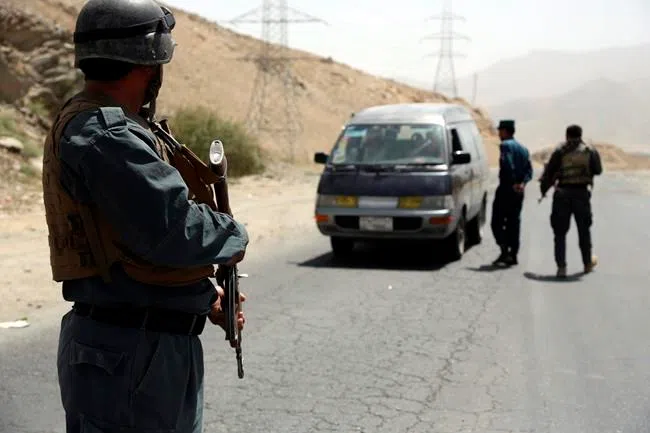
Key Afghan city turned into ‘ghost town’ by deadly battles
KABUL — Hundreds of people have fled four days of fierce fighting between Afghan forces and the Taliban over the key provincial capital of Ghazni that has killed about 120 security forces and civilians, the defence minister and witnesses said Monday.
Nearly 200 insurgents, many of them foreigners, have been killed, the government said.
Between the civilians have left the city and those too fearful to venture from their homes into the streets, “Ghazni has become a ghost town,” said Ghulam Mustafa, who made it to neighbouring Maidan Wardak province with 14 of his relatives.
“The city became so dangerous,” the 60-year-old Mustafa told The Associated Press while stopped briefly at a checkpoint where police searched for wounded Taliban fighters.
